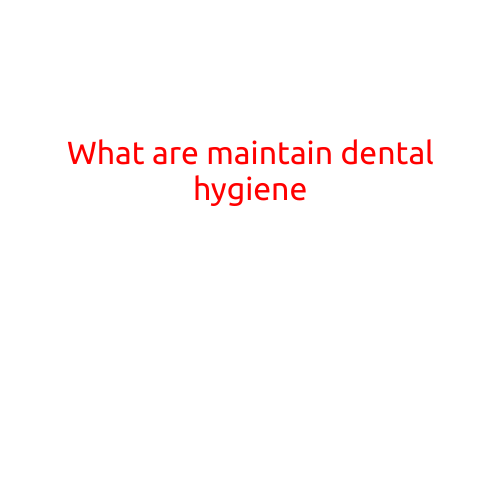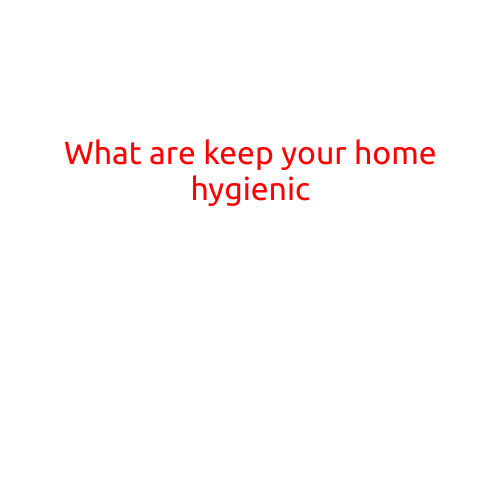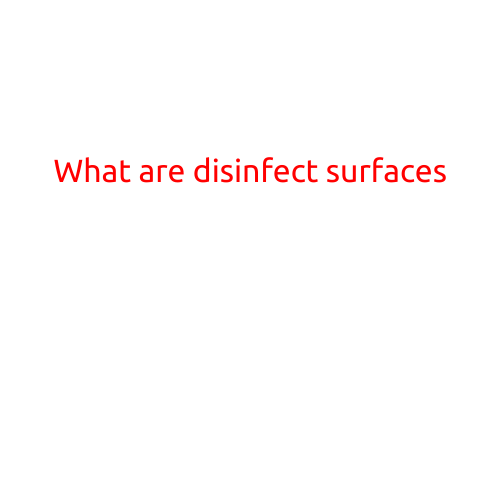
What are Maintain Dental Hygiene?
Maintaining good dental hygiene is crucial for overall health and well-being. A healthy mouth not only keeps your teeth and gums strong, but also reduces the risk of a wide range of health problems. Good oral hygiene is essential for everyone, regardless of age. In this article, we will discuss the importance of dental hygiene and provide tips on how to maintain good oral health.
Why is Dental Hygiene Important?
Dental hygiene is important for several reasons:
- Prevents Tooth Decay: Regular brushing and flossing help remove plaque, a sticky film of bacteria, from your teeth. If plaque is not removed, it can cause tooth decay and cavities.
- Gum Disease Prevention: Gingivitis, a common gum disease, can lead to swollen gums, bad breath, and even tooth loss. Brushing and flossing help prevent gum disease.
- Fresh Breath: Regular oral hygiene helps eliminate bad breath and leaves your mouth feeling fresh and clean.
- Boosts Confidence: A healthy, clean smile can boost your confidence and self-esteem.
- Prevents Systemic Diseases: Recent studies have linked gum disease to an increased risk of heart disease, diabetes, and other systemic diseases. Good oral hygiene may help reduce this risk.
How to Maintain Good Dental Hygiene?
Maintaining good dental hygiene is simple and requires only a few minutes of your day. Here are some tips:
- Brush Your Teeth: Brush your teeth at least twice a day, morning and night, for two minutes each time. Use a fluoride toothpaste and a soft-bristled toothbrush.
- Floss Daily: Flossing once a day helps remove food particles and plaque from between your teeth and under your gumline.
- Use Mouthwash: Using a mouthwash can help kill bacteria and loosen food particles.
- Visit Your Dentist: Regular check-ups with your dentist can help identify any oral health issues early on, preventing more serious problems from developing.
- Eat a Balanced Diet: A diet rich in fruits, vegetables, and whole grains can help keep your teeth and mouth healthy.
- Limit Sugary and Acidic Foods: Sugary and acidic foods can contribute to tooth decay and erosion. Limit your consumption of these foods and drinks.
- Chew Sugar-Free Gum: Chewing sugar-free gum can help stimulate saliva production, which helps neutralize acids and remineralize teeth.
- Replace Your Toothbrush: Replace your toothbrush every three to four months or sooner if the bristles become frayed.
- Clean Your Tongue: Use a tongue scraper or a toothbrush to clean your tongue, removing bacteria and freshening your breath.
- Stay Hydrated: Drink plenty of water to keep your mouth moist and help flush out food particles and bacteria.
Additional Tips for Maintaining Good Dental Hygiene
- Wear a Mouthguard: If you play sports, wear a mouthguard to protect your teeth from injury.
- Avoid Tobacco: Tobacco use has been linked to a wide range of oral health problems, including tooth decay and gum disease.
- Get Regular Cleanings: Regular cleanings can help remove tartar and plaque, reducing the risk of oral health issues.
- Don’t Brush Too Hard: Brushing too hard can damage your gums and tooth enamel. Use gentle circular motions when brushing.
- Monitor Your Oral Health: Monitor your oral health and report any changes or concerns to your dentist.
In conclusion, maintaining good dental hygiene is essential for overall health and well-being. By following these simple tips, you can keep your teeth and mouth healthy, preventing a range of oral health issues and boosting your confidence and self-esteem.





